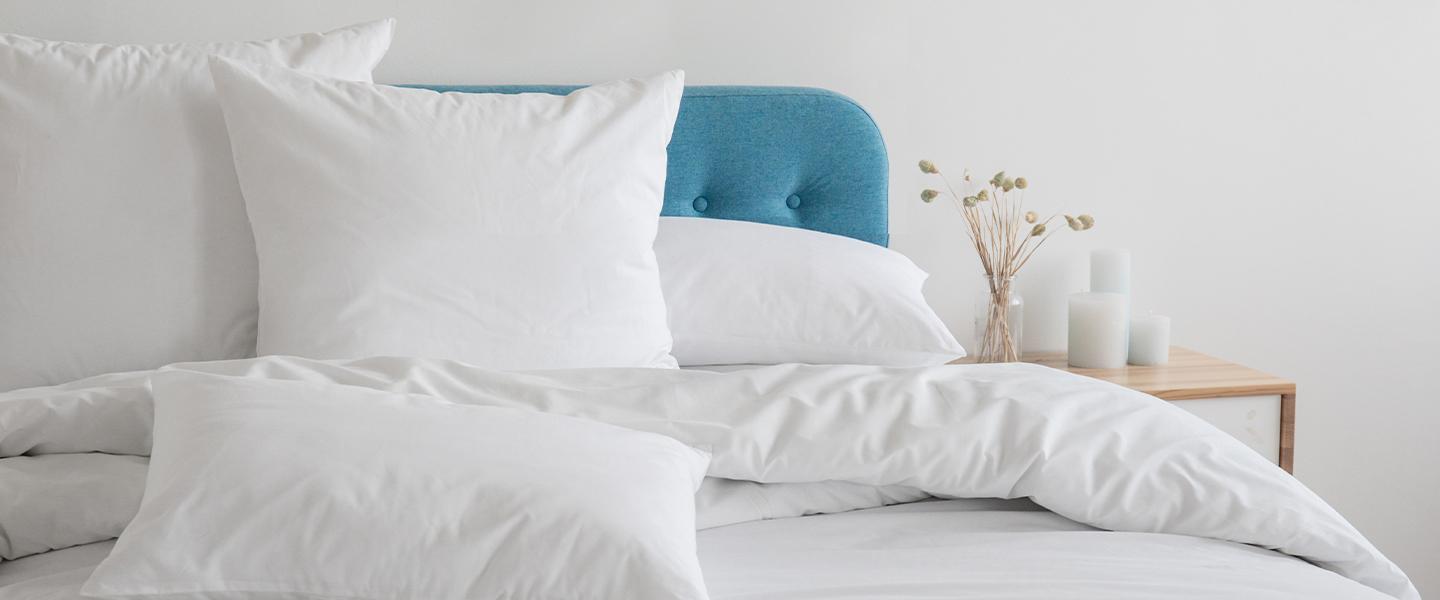What Are The Top 3 Best Anti-Allergy Pillows?
Anyone that suffers from allergies will understand how frustrating it can be when pollen counts are high or when you are exposed to certain animal hair. Certain fibres and materials can also attract dust mites that can cause allergies.
Finding bedding that can significantly reduce or remove altogether the allergens found on bedding will help improve your rest, and in turn, your health and wellbeing, making it an important investment for your bedroom.
This article will look at the best anti-allergy pillows on the market and give you other information that allergy sufferers will benefit from.
What Does A Hypoallergenic Pillow Do?
The main allergens that anti-allergy pillows work against come from dust mites, which are microscopic organisms that feed on the skin cells shed by people. Dust mite waste and bodies can cause an allergic reaction among some, including breathing difficulties, chest pain, a runny nose, coughing, and sneezing.
Unlike allergies like hayfever, reactions to dust mites last all year round and are not only frustrating but can cause issues with sleep.
Anti-allergy pillows and bedding are tightly woven, stopping the dust particles and mites from getting in and out of the bedding. The tightly woven covering can protect pillows, duvets, and mattresses.
For more, read our guide on how anti allergy pillows work.
The Top 3 Best Anti-Allergy Pillows
Choosing a new pillow is never easy. So here are our top picks to help you decide on the best anti-allergy pillow for you.
Best Anti-Allergy Pillow For Front Sleepers -Slumberdown Soft Support Pillow
This is an excellent pillow for front sleepers, as this stops the head from being pushed back. When your head is pushed back, the spine can curve up, leading to a sore neck in the morning. Ideally, the spine, neck, and head should be aligned while you sleep.
The Slumberdown Soft Support Pillow is specially designed with a microfibre cover and hollow-fibre filling to combat bacteria, fungus, and dust mite build up.
Anti-allergy pillows are especially important for front sleepers whose nose and mouth will be close to the pillow during the night. These pillows are also machine washable making it easy to keep up a good hygiene regime with your bedding.
The soft-touch microfibre cover and cloud spun hollow-fibre filling are also extremely comfortable, ensuring you get a good night's rest.
Best Anti-Allergy Pillow For Back Sleepers -Slumberdown Complete Protection Antiviral Pillow
This is a great choice of pillow for back sleepers, helping to support the head and ensure the neck and spine are aligned during sleep.
As well as being hypoallergenic, the Slumberdown Complete Protection Antiviral Pillow has been designed using an antiviral and antibacterial treatment to stop the spread of germs and bacteria. The use of silver ions prevents cross-contamination and the growth of any virus.
The soft-touch microfibre cover and 100% hollow-fibre filling make this a comfortable pillow that is also machine washable for convenience.
Other products in the range include a Complete protection antiviral duvet, compete protection antiviral mattress protector, and complete protection antiviral pillow protector that use the same technology to minimise the spread of allergens, bacteria, and viruses.
Best Anti-Allergy Pillow For Cooling -Snuggledown Anti Allergy Medium Support Pillow
The Snuggledown Anti Allergy Medium Support Pillow is made with a 100% cotton cover and 100% hollow-fibre filling, making it a comfortable, anti-allergy option that is ideal for back and side sleepers.
The breathable materials ensure the pillow stays nice and cool through the night, and this is great for use during the summer. These anti-allergy pillows are also machine washable and come in the standard UK size of 74 cm by 48 cm.
How Can Hypoallergenic Pillows Help You with Getting a Good Night's Sleep?
Hypoallergenicpillows and bedding minimise but don't remove the dust or dust mites altogether from your bed, and you will still have to clean regularly for them to be effective.
By doing this, you can dramatically reduce the risk of an allergic reaction and allow allergy sufferers to enjoy a night of better sleep.
Factors to Consider When Buying Anti-Allergy Pillows
Choosing a pillow can be tricky, but understanding how you sleep and the different options available should help you make a decision that will result in you finding the best pillow for your needs. You can also look for approval from the British Allergy Foundation or Allergy UK to ensure you get a sound sleep!
Choose a dust mite-proof option
Whether you suffer from allergies or not, minimising the risk of dust mites and the waste they produce is advised. After all, nobody wants to breathe that in while they are sleeping.
There are many great hypoallergenic options available on the market to suit your sleeping style. Front or stomach sleepers should choose a soft pillow, back sleepers are better with medium-firm pillows, and if you are a side sleeper, you will find a medium-firm to firm pillow that offers the best support for your head and neck.
Consider the material
The materials used in the pillow you are selecting will also play a big part in how well you can protect yourself against allergens. Natural materials like down and feathers are not recommended, with synthetic materials like memory foam pillows providing far better hypoallergenic options.
It would be best to consider both the cover material and the filling when deciding on your new pillow. Anti-allergy pillow protectors are available that can help transform pillows into viable options, like the Slumberdown Anti Allergy Pillow Protector.
Don't forget about the rest of your bedding
Pillows are extremely important to get right because you will be breathing in any allergens that are present there, but that doesn't mean you should ignore the rest of your bed.
Dust and dust mites are inevitable, and it is an unfortunate fact of life. However, regular cleaning and anti-allergy bedding can help to minimise the risk of allergic reactions occurring.
You will be able to shop for anti-allergy duvets, pillows, pillow protectors, duvet protectors, mattress toppers, and mattresses. Investing in all of these will help to reduce dust and dust mites. Regular cleaning will also help to combat any other allergens like pet dander.
Make sure the cover is removable and washable
Hygiene in regards to bedding is essential and having removable covers that are machine washable offers a level of convenience to your routine.
Bedding should be washed at least fortnightly, and pillowcases at least weekly if they are getting used daily.
Many hypoallergenic pillows are also machine washable, making it easier to keep your bedroom in the best condition for a good night's sleep.
FAQs
What makes a pillow hypoallergenic?
Hypoallergenic pillows form a protective barrier around the pillow. The material used needs to be tightly woven to stop dust particles and mites from passing through it.
How often should you wash your pillow cover?
Bedsheets should be washed every one or two weeks, and pillowcases shouldn't be left longer than one week. Face oil, sweat, and saliva mean pillowcases require cleaning more regularly. People that sleep on their front might want to consider washing their pillowcases as often as twice a week.
Are foam pillows hypoallergenic?
Memory foam pillows are made with hypoallergenic materials to repel bacteria, dust mites, and other allergens, making them an excellent choice for anti-allergy pillows.
How long do hypoallergenic pillows last?
The lifespan of your anti-allergy pillows will vary depending on the quality, brand, materials used, and your usage. On average, a good pillow should last between a year and a half and three years.
How else can I reduce allergens in the bedroom?
Regular cleaning should be a part of any home to ensure high hygiene levels. Allowing good air circulation is also advised. This can be difficult if there is a high pollen count or during the winter months, so using a fan can also help.
Notice if you are suffering from allergy symptoms like itchy eyes, a runny nose, sneezing, coughing, and wheezing. It will be worthwhile carrying out a deep clean of your home, opening doors and windows to air the house, and cleaning or replacing your bedclothes.
Air purifiers can be a good investment for people that suffer from allergies or other health conditions. Using filters to trap pollen, pet dander, dust, dust mites, and other allergens, air filters are an excellent way to ensure the other steps you have taken have every opportunity to work and give you a better night's sleep.
Final Thoughts
Everyone loves getting a sound night's sleep, but it isn't always possible if you suffer from allergies. Poor sleep can go on to cause other health issues, be detrimental to your mental health, and cause problems with motivation and concentration. Therefore, it's vital that you tackle any problems causing a night of interrupted sleep.
Indoor allergens can cause symptoms that can interrupt or prevent sleep, including breathing difficulties, so ensuring you have bedding that helps to minimise the risk is a simple move. Combining quality, anti-allergy bedding, and regular cleaning will help reduce the dust and pesky mites that thrive on it.
Investing in anti-allergy pillows is a great way to enjoy a comfortable night's sleep, and we hope you are able to take the advice provided in this article to find the perfect pillow for you.
For more, read our what is anti-allergy bedding? ultimate guide
What's trending now...
-
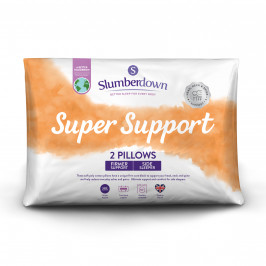
Slumberdown Super Support Firm Support Side Sleeper Pillow, 2 Pack
£17.00
Shop Now -
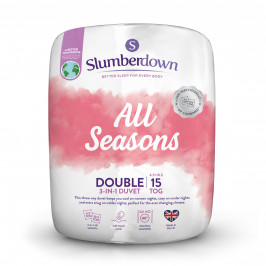
Slumberdown All Seasons Combi 15 Tog (10.5 + 4.5 Tog) Double Duvet
£30.50
Shop Now -
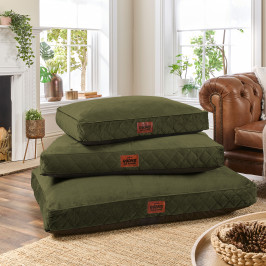
Slumberdown Paws for Slumber Olive Green Pet bed, Medium
£39.00
Shop Now -
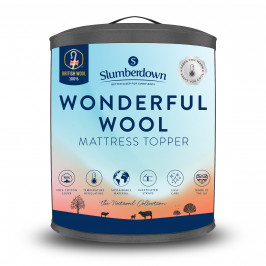
Slumberdown Wonderful Wool Mattress Topper
From: £54.50
Shop Now -
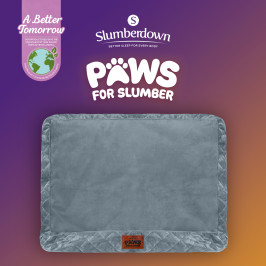
Slumberdown Paws for Slumber Extra Large Pet Bed Spare Cover, Grey
£20.00
Shop Now -
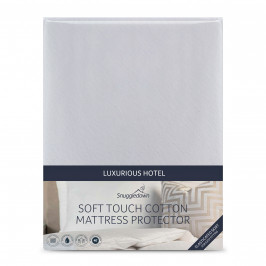
Snuggledown Luxurious Hotel Cotton Waterproof Mattress Protector, Double
£23.50
Shop Now -
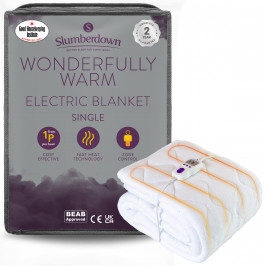
Slumberdown Wonderfully Warm Electric Blanket - Single
£60.00
Shop Now -
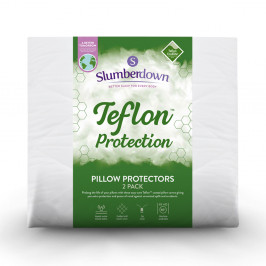
Slumberdown Teflon Pillow Protector - Pack of 2
£14.00
Shop Now -
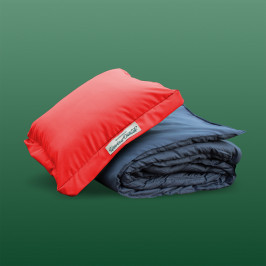
Slumberdown Unwind Outside 2-in-1 Waterproof Cocoon Set, Burnt Orange
£30.00
Shop Now -
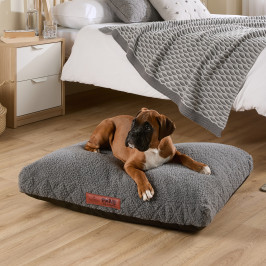
Slumberdown Paws For Slumber Sherpa Pet Bed, Medium
From: £25.00
Shop Now -
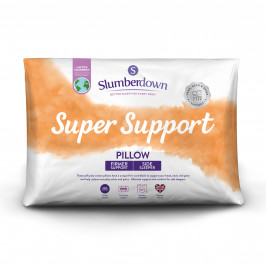
Slumberdown Super Support Firm Support Side Sleeper Pillow
From: £17.00
Shop Now -
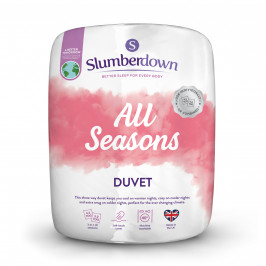
Slumberdown All Seasons Combi Duvet
From: £25.50
Shop Now -
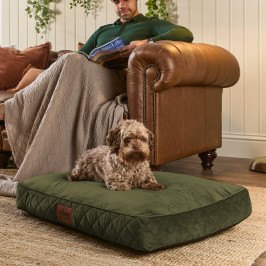
Slumberdown Paws for Slumber Medium Pet Bed
From: £39.00
Shop Now -
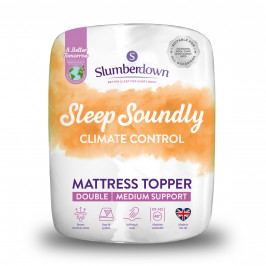
Slumberdown Sleep Soundly Climate Control Mattress Topper, Double
£33.50
Shop Now -
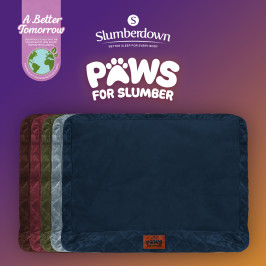
Slumberdown Paws for Slumber Extra Large Pet Bed Spare Cover
From: £20.00
Shop Now -
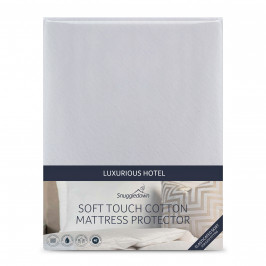
Snuggledown Luxurious Hotel Cotton Waterproof Mattress Protector
From: £19.50
Shop Now -
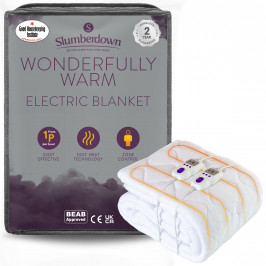
Slumberdown Wonderfully Warm Electric Blanket
From: £60.00
Shop Now -

Slumberdown Unwind Outside 2-in-1 Waterproof Cocoon Set
From: £30.00
Shop Now -
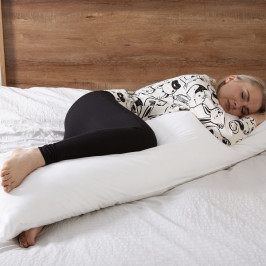
Slumberdown Body Support Pillow, 1 Pack, Includes 100% Cotton Pillow Case
£20.00
Shop Now -
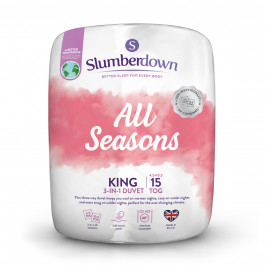
Slumberdown All Seasons Combi 15 Tog (10.5 + 4.5 Tog) King Size Duvet
£34.00
Shop Now -
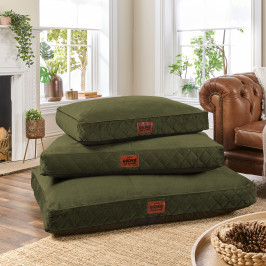
Slumberdown Paws for Slumber Olive Green Pet Bed, Large
£49.00
Shop Now


